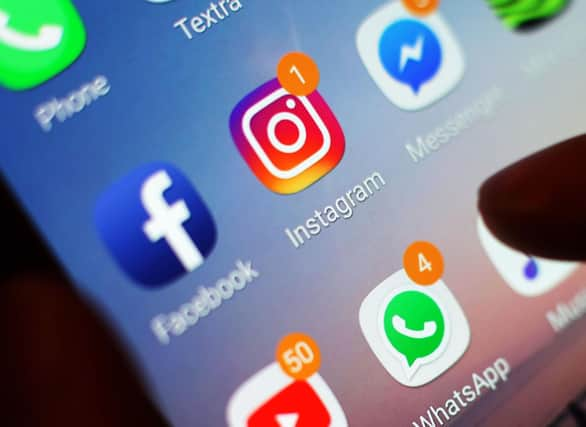CHILDLINE ADVICE: How to tackle children's Fear of Missing Out


But as your child goes back to school it’s useful to pay attention to signs of loneliness, especially after the holidays. Half-term can be very difficult for children with real struggles around being left out of social events, also known as ‘FOMO’ or Fear of Missing Out.
In 2018/19, more than 12,000 children called Childline to discuss difficulties with friends and friendship groups, FOMO being one of the issues children wanted help with. A further 71,000 contacted us to discuss mental and emotional health, including anxiety, one of the results of FOMO.
Advertisement
Hide AdAdvertisement
Hide AdTime off school provides the chance for spending time with friends and family, but sometimes children and teens can find themselves feeling worse when they see their friends having a better time than them on social media.
So, in this post-holiday period, I want to advise parents on how to help a child who may have
experienced FOMO over the last week.
Here at Childline, we get calls from children across the country telling us how they feel left
out and alone during the holidays. One boy told Childline: “My group of friends have been meeting up on several occasions and I’m the only one not invited. They all keep it really ‘hush hush’ so they think I won’t find out but I do because they all post photos online of them meeting up.”
Advertisement
Hide AdAdvertisement
Hide AdFOMO is exacerbated by social media and the anxiety caused when a child sees something exciting online, usually involving friends, that they haven’t been invited to. This can bring about feelings of sadness, loneliness, and low self-esteem.
It’s easy for children to think that the online world reflects the real world. Actually, many posts are chosen and then adjusted through filters, and are made to look like the ideal life.
Unfortunately, when clouded in anxiety, this can be difficult for a child to remember. As a result, when a child sees their friends posting something exciting like being on holiday or at a party, they might fear they are missing out on this ‘better life’ that they see online.
Hence, it’s important that children understand that what they see online might not be as real as it seems.
Advertisement
Hide AdAdvertisement
Hide AdNot being invited to events can also lead to a child questioning their popularity and importance. This can have consequences on their self-esteem and mood. One girl told Childline: “One of the most popular girls recently had a party and I’m the only girl in our form that wasn’t invited. I know it’s all the girls will be talking about on Monday and obviously I won’t know a thing.”
In this case, not only has the girl felt anxious during the holidays but these feelings will continue when they go to school and hear people talking about the party. Even though not being invited to a party might seem like a small problem, for a child or young person it can have a very profound effect.
It is important to have regular online safety chats with our children where we talk not only about the practicalities of social media, for example about privacy settings or how to block someone, but also about the reality of social media, and how what they see could be fabricated.
When a child is in this situation it can be a very lonely place. That’s why we have a role to play in helping children to stay FOMO-Free.